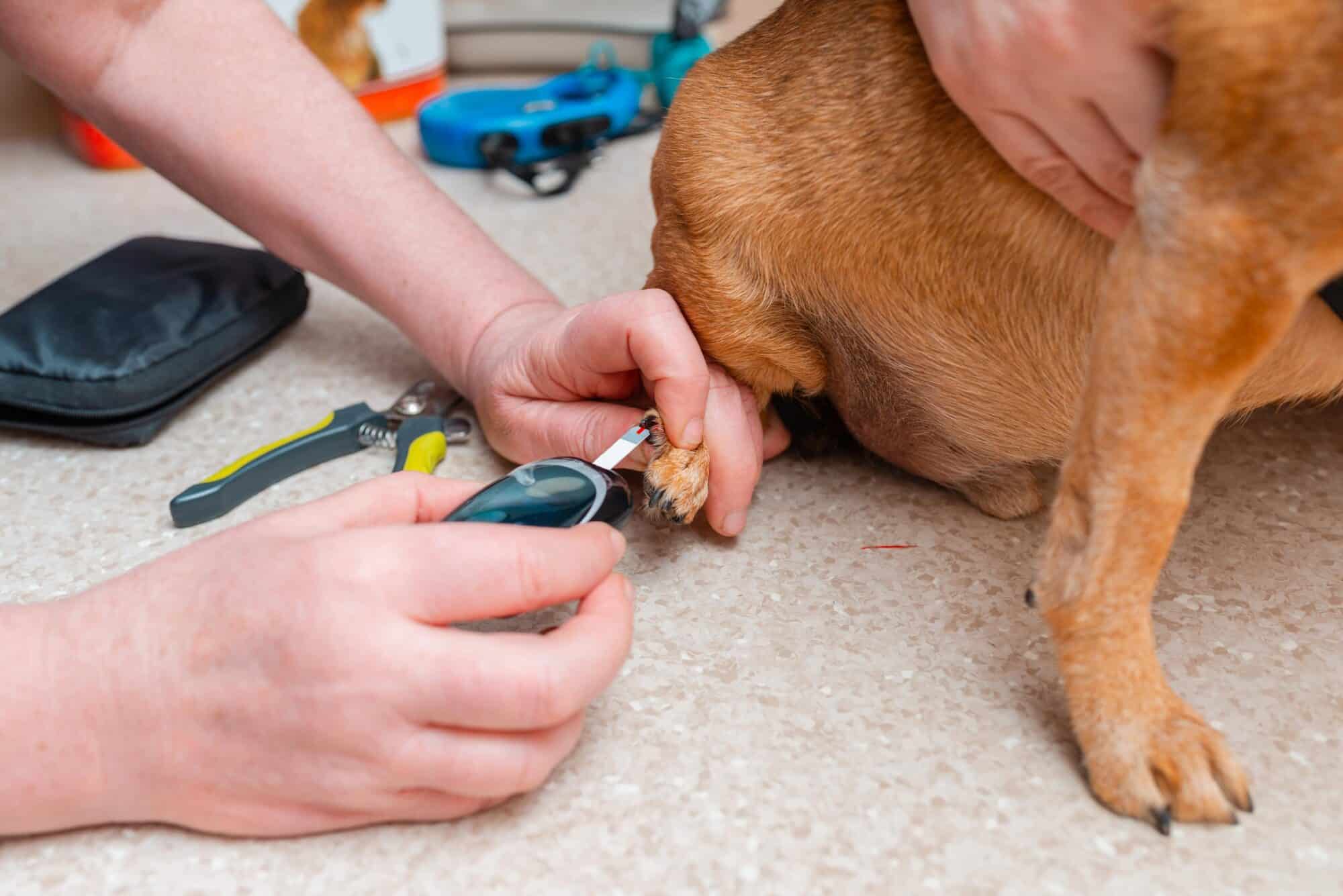Diabetes in Pets: Why Early Signs are Often Missed

Diabetes isn’t just a human condition—our pets can develop it, too. In fact, pet diabetes is one of the most common endocrine disorders in pets, affecting both dogs and cats. The good news? With early detection and proper management, diabetic pets can still live long, happy lives. At Crossover Veterinary Clinic, we want pet owners to feel informed, not fearful, if their pet receives a diabetes diagnosis.
Why Early Warning Signs Often Slip By
Pet owners are observant, but the earliest pet diabetes signs can be easy to dismiss. A little extra drinking water? Probably the weather. A slimmer-looking senior cat? Maybe just age. A dog asking to go out more often? Could be behavioral. But when these subtle changes add up, they may point to something more serious.
Common early pet diabetes signs include:
- Excessive thirst in dog or cat (constantly at the water bowl)
- Frequent urination
- Senior cat weight loss despite a healthy appetite
- Cloudy eyes or vision changes (especially in dogs)
- Lethargy or changes in energy
Because these signs overlap with other conditions, diabetes often goes undiagnosed until it progresses. That’s why regular check-ups with your Crossover vet are so important. Through physical exams and routine bloodwork, we can spot early warning signs even before obvious outward symptoms are present.
Risk Factors You Should Know
Any pet can develop diabetes, but certain factors increase risk:
- Age (middle-aged and senior pets are more vulnerable)
- Obesity
- Genetics and breed predisposition
- Pancreatitis or other health issues
Understanding your pet’s risk can help you and your veterinarian keep a closer eye on potential pet diabetes signs.
The Importance of Early Diagnosis
Hearing that your dog or cat has diabetes can feel overwhelming at first. But many pet owners are surprised to learn how manageable the condition is with proper care. Daily insulin, a consistent diet, and exercise tailored to your pet’s needs can dramatically improve quality of life. Pets who receive early diagnosis and treatment often thrive for many years.
Even better—when caught early, diabetes complications can often be minimized or prevented altogether. That’s why awareness matters so much.
How Your Crossover Vet Can Help
We understand the worry that comes with noticing changes in your pet. Our team takes a compassionate, step-by-step approach to diagnosis and management. From thorough exams and lab work to treatment plans and ongoing support, we’re here to make sure you never feel alone in caring for your diabetic pet.
Keeping Watch, Staying Hopeful
If you notice excessive thirst in your dog or cat, senior cat weight loss, or other concerning changes, don’t wait. Contact us at (479) 750-7474 to schedule an examination. With early intervention and attentive care, endocrine disorders in pets can be managed, and your furry family member can continue to live a comfortable, joyful life.
